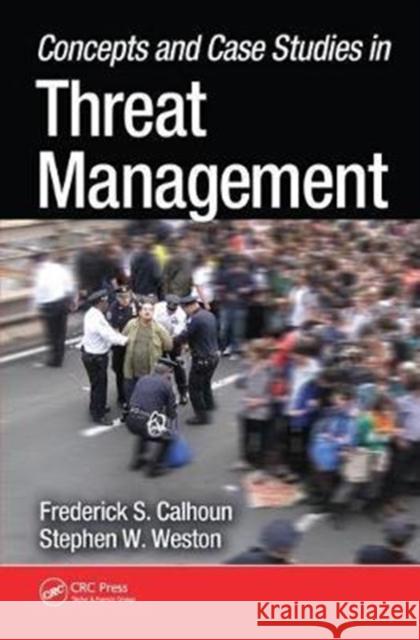Concepts and Case Studies in Threat Management » książka
Concepts and Case Studies in Threat Management
ISBN-13: 9781138458604 / Angielski / Twarda / 2018
Concepts and Case Studies in Threat Management
ISBN-13: 9781138458604 / Angielski / Twarda / 2018
(netto: 932,90 VAT: 5%)
Najniższa cena z 30 dni: 919,20
ok. 16-18 dni roboczych.
Darmowa dostawa!
Professionalization has come to the field of threat management. It has developed a systematic theory unique to the field, recognized authorities have emerged, and it is finding its own ethical code of conduct. It is also beginning to grow its own culture, complete with a vocabulary of its own. Although the field has a way to go, it is well along the path to becoming a profession.One product of this ongoing professionalization is the identification of certain key concepts that, until now, have been unidentified or undefined. Concepts and Case Studies in Threat Management explores the salient themes essential to the practice and profession of threat management. These concepts include case dynamics and intervention synergy, the importance of determining key factors in each situation, the power of inhibitors, differences among the various venues of violence, and avoiding myopic management strategies and isolationism. The authors illustrate these concepts and more, with detailed examples and real-life case studies that give readers practical, concrete perspectives on the myriad threat management scenarios they may encounter as they practice their profession. The book also introduces a glossary of terms, developed in a joint effort between the authors and researchers at the University of Nebraska�s Public Policy Center, that have emerged during the current professionalization of threat management. Moving the field towards a more pragmatic approach, the book explores in depth the current state of the threat management process. With a full understanding of the components and challenges in each threat management situation, those charged with protecting the public will improve their approach to the tasks of identifying, assessing, and managing individuals who pose a risk of violence.











